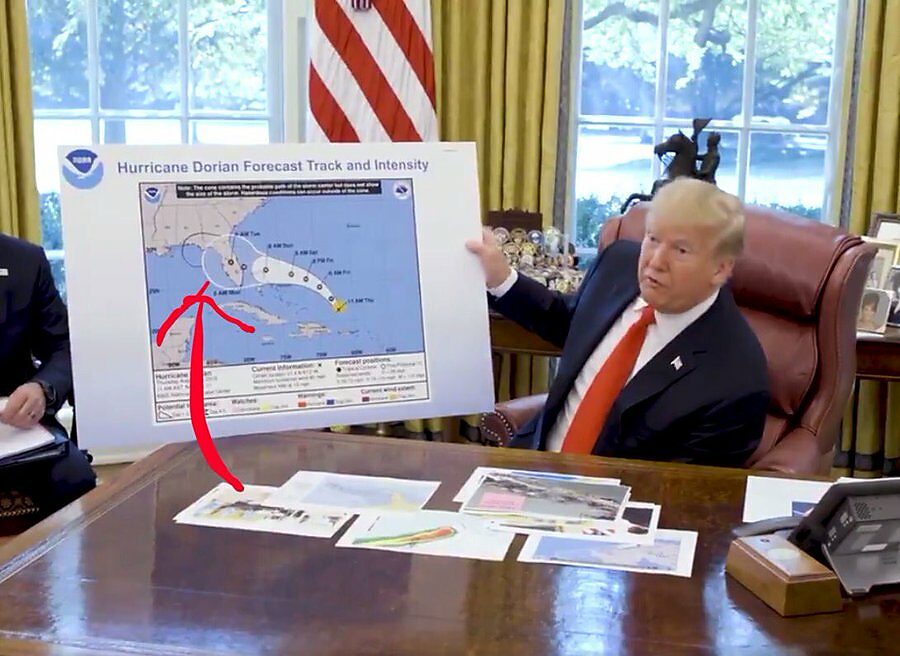“We caught him in the act and terminated him,” President Trump said in his first public comments about the January 3rd targeted killing of Iranian General Qassim Suleimani. The strike was ordered to avert “imminent and sinister attacks on American diplomats and military personnel.” Over the last two weeks, the Trump administration has offered a farrago of conflicting accounts—and zero evidence for that claim. In this case—apologies to Don Rumsfeld—absence of evidence is evidence that imminence was absent. And, unless you believe the Constitution gave the president practically unbridled discretion to embroil us in war, that means legal authority for the move was absent too.
The Pentagon’s initial announcement made no claim of exigent circumstances: “this strike was aimed at deterring future Iranian attack plans.” Hours later, however, Secretary of State Mike Pompeo claimed the president acted “in response to imminent threats to American lives”—“dozens if not hundreds” of them. Since then, when asked to elaborate, Pompeo has served up (1) a word-salad about “situational awareness of risk and analysis”; (2) a backward-looking theory by which past attacks demonstrate the imminence of future ones; and (3) the defensive insistence that “it was real,” even if “we don’t know precisely when and we don’t know precisely where”—also, don’t give me that look: “those are completely consistent thoughts”! He may yet crack under questioning.
“We did it because they were looking to blow up our embassy,” President Trump said last Thursday; wait, make that embassies, plural, four of them, he told Fox’s Laura Ingraham on Friday. Given the administration’s well-known preference for keeping Congress in the dark, maybe it’s not surprising nobody mentioned the alleged embassy threat in the post-hoc, closed-door Hill briefing last week. But surely it’s a little odd that Trump’s own secretary of defense didn’t get the intel memo.
There’s a simple explanation for the Trump Team’s shifting explanations: they’re lying. Leave aside the dubious notion that it’s possible to stop an imminent attack by killing a senior military commander (were the plans just in his head?)—apparently, the president conditionally authorized the Soleimani killing some seven months ago. (According to NBC News, Pompeo and then-national security adviser John Bolton even urged Trump to greenlight the hit last June, in response to the Iranians plinking a US drone.) The news that the day of the strike, U.S. forces tried and failed to take out another top Quds Force commander in Yemen further undermines the administration’s story that their aim was to avert an imminent threat.
Don’t worry about it, the president said Monday: whether “the future [Iranian] attack” (we’re back to just one, now?) was imminent or not “doesn’t really matter because of [Soleimani’s] horrible past.” “Imminence is something of a red herring,” Attorney General Bill Barr echoed later that day: the strike was a “legitimate act of self-defense,” and, legally, not even “a close call.”
It’s not surprising that the attorney general holds that view. Barr embraced a maximalist theory of presidential war powers long before he became Trump’s Bobby Kennedy. In the run-up to the 1991 Gulf War, Barr, then serving as deputy attorney general, advised President George H.W. Bush that he could launch a land war involving some half a million U.S. troops without authorization from Congress.
But, unless you’re willing to go full John Yoo and endorse “the president’s right to start wars,” imminence matters because the constitutional claim has to be based on self-defense. Under Article II, the president retains some measure of defensive power, alternately described at the Convention as the power “to repel sudden attacks” or “to repel and not to commence war.” That power reasonably includes the use of force to avert an impending attack not yet begun. But as you move from shooting back, to addressing an immediate threat, to “deterring future Iranian attack plans”—or “re-establishing deterrence,” as Pompeo put it this week—the self-defense rationale disappears. If the Trump administration wants the general power to target Iranian military commanders as enemy combatants, it should make its case for war to Congress.
On the Cato blog last Wednesday, I posed a hypothetical to test how far the Trump administration’s “defensive” war powers theory might extend: “‘Supreme Leader’ Ayatollah Ali Khamenei sits atop the military chain of command and apparently had to approve the recent militia attacks. Does Article II empower Trump to order a hit on the Ayatollah?”
Later that day, Sen. Mike Lee (R‑UT) came out of the congressional briefing with Trump national security officials as angry as anyone’s ever seen him. It turns out, one of Lee’s colleagues asked that very question—and the administration refused to answer.
Lee—the founder of the “Article I Project,” aimed at reclaiming Congress’s constitutional powers—was right to be livid. Assassinating a senior regime figure to “re-establish deterrence” isn’t repelling a sudden attack—it’s an effective declaration of war. The power to make that call can’t be found in Article II.

